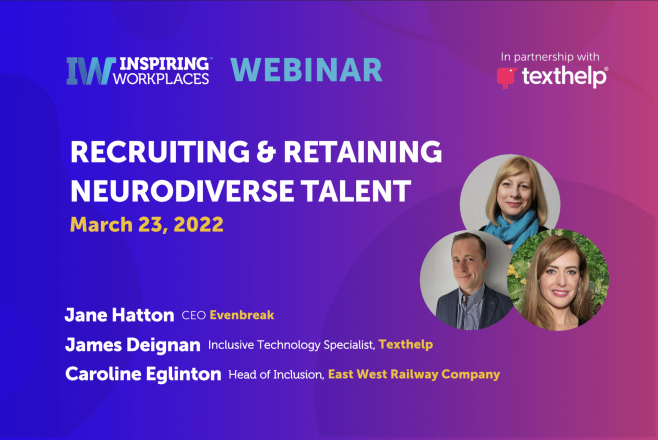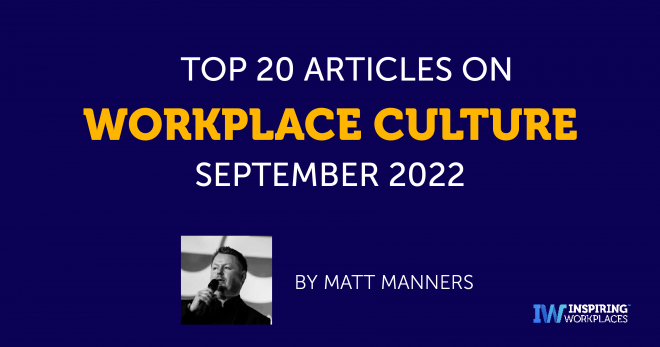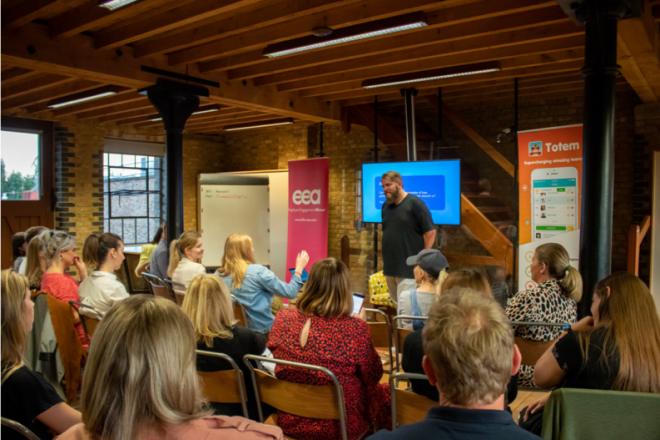
20th September 2024
Guest Post: Company Culture – It’s a Feeling Thing

This guest post was written by Richard Roberts, HR Coach, Top 100 Global Employee Engagement Influencer.
Why are some organisations more able to recruit and retain their people than others? And why do some people perform better, with stronger employee engagement and a willingness to go the extra mile? It’s often down to the culture of an organisation.
Culture is becoming increasingly important to employees. If you need any convincing, consider this. A Glassdoor survey found 77% of respondents would consider a company’s culture when searching for a new job.
Is there a culture formula?
Culture is something that’s hard to pinpoint, as there’s no magic wand or secret formula. But, as someone who has spent more than 30 years developing positive and motivating cultures within organisations, I can sum up why it matters in one short sentence.
It’s how your people feel about working for you.
The good news is that you can influence how your people feel – whether you are a line manager, in an HR or people role, or perhaps the CEO yourself. In my experience, these are some of the most important contributors to building a positive culture.
Connection
Organisations are all about people working together, regardless of location. They are about human relationships – something that was tested throughout the pandemic. And that’s why now, even if hybrid working remains important for many, so does the opportunity to meet, work together and enjoy the buzz and productivity that comes from spontaneous interactions. That only comes through real connection. When employees feel more connected to their colleagues and their company, their overall perception of their company improves, as does their feeling of wellness.
Post pandemic many of us are in different locations and may remain this way. That’s why coming together in a physical place, on a regular basis can help. It doesn’t have to be purely for work either. Team socials are a powerful way to re-connect. Line manager soft skills are important too. The more approachable and empathetic they are, the better the sense of connection to the business and the relationship. And don’t forget the onboarding of new employees, especially if they are going to be working remotely.
Purpose
The purpose of an organisation is increasingly important and one of the main drivers as people re-evaluate their careers. Increasingly, they want to work for an organisation that makes a difference and feel that their role contributes to this. When this happens, people who live their purpose at work are more productive and engaged, more resilient, and more likely to stay.
The key to a purpose driven culture, according to author and speaker Simon Sinek, is to know why you do what you do. He says a lot of companies can tell you what they do, they can tell you how they do it – but very few can tell you why. And it’s the ‘why’ part of that purpose that employees increasingly want to be sure about. Purpose has to be authentic too. This means saying what you do – why you do it – and then actually doing what you say. If not, your people will see right through what they may consider hollow gestures – and that’s not going to feel good.
If your purpose hasn’t changed, re-focus on that – it’s what may well have attracted people to you in the first place. If the pandemic has caused your business to pivot in strategy, share where you are heading and emphasise how their roles can still align to that new purpose. Needless to say, leaders have a big part to play in communicating purpose.
Trust
Trust was often the ‘glue’ that held organisations together during the pandemic. It was challenging for many line managers too, but those who showed their people they trusted them to deliver often got the best back in terms of productivity. There’s no reason why the same levels of trust can’t be shown now. Indeed, rowing back on trust and autonomy is likely to be damaging to the goodwill that exists.
Research by US neuroeconomist Paul Zak confirms the importance of trust in terms of building a positive and engaged culture. He found that compared with people at low-trust companies, people at high-trust companies reported: 74% less stress, 106% more energy at work, 50% higher productivity, 13% fewer sick days, 76% more engagement, 29% more satisfaction with their lives and 40% less burnout.
Leaders and line managers can influence culture by building trust in what they say (and deliver) as well as how they act. This also applies to how they respond to failure. Employees will take risks and make mistakes and must feel trusted despite this, otherwise how can they learn and develop?
Communication
Communication is often something an organisation thinks it has got right – when the reality is the very opposite. Holding events in physical buildings and forgetting those working remotely. Communications that don’t include everyone. Asking for feedback – but forgetting to send the email to those working from home. The list could go on.
Everyone wants to feel that they have a voice and their opinions matter. I find that leaders who take the time to encourage two-way communication not only increase engagement and belonging, but hear some pretty good ideas in the process. Simply asking “how can we make this better for you” shows you care and also encourages constructive feedback. It says to your employees – ‘you have a voice here and you matter.’
Development
The more developed your employees feel, the more positive they’ll feel about your culture. When employees grow personally and professionally, being more passionate and engaged about what they do tends to develop too. The more they learn, and see themselves developing, the more motivated they are to keep going. This creates more capable and more loyal people who reward the organisation by staying.
An organisation that supports learning and development isn’t just producing more capable employees or leaders. They are producing more capable people in life, more balanced and almost certainly with a better sense of wellbeing. It is worth doing a skills audit – looking at the capabilities you need, the people you have and aligning their development needs with that of the organisation.
In conclusion
I started by talking about connection, that’s a very human need. All the points made here are really different aspects of what might be called a human or people first culture. People need to feel wanted, valued, trusted, developed – all of which apply both inside and outside of work. These are also my personal ‘take’ on the cultural issues that affect how your employees feel about working for you. Always have in mind that their view is a fluid state. You can nurture and engage them through your culture, but you can also do the opposite.






